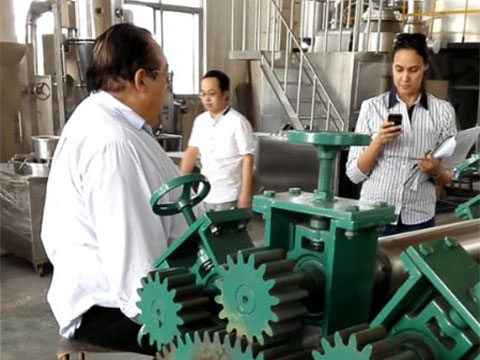Disadvantages of pressure spray dryer
Disadvantages of pressure Spray Dryer

① The flow cannot be adjusted during production. The decisive factor of flow mainly depends on the aperture and operating pressure at the outlet of the atomizer, and the change of operating pressure will affect the particle size of the product. Therefore, if you want to change the flow, you can only change the aperture of the atomizer or adjust the operating pressure;
② Pressure spray drying is not applicable to the treatment of fibrous or granular materials, which are easy to block the pores of the atomizer;
③ It is not suitable for processing high viscosity materials or suspensions with solid-liquid interface, which will cause serious uneven content of products;
④ Compared with the other two types, the volume evaporation intensity of pressure spray drying is lower. The raw products produced by spray drying have been introduced in the relevant contents, but it is mentioned here that the pressure spray drying granulation technology has been used in the following products.
Chemical industry: catalyst, resin, synthetic washing powder, grease, ammonium sulfate, dyes, dye intermediates, white carbon black, graphite, ammonium sulfate, pesticides, potassium fluoride, brightener CXT. Food: amino acids, seasoning, protein, starch, dairy products, coffee extract oil, whole milk powder, egg prion, cocoa milk powder, milk powder, egg white (yellow), oats, chicken juice, instant tea, seasoning meat, protein, soybeans, peanut protein, corn syrup, corn starch, glucose, pectin, maltose, potassium sorbate, pumpkin powder. Fish meal, meat essence. Drugs: Chinese patent medicine, antibiotics, traditional Chinese medicine granules, traditional Chinese medicine extracts, drug glue, yeast, vitamins, antibiotics, amylase, lipase. Ceramics: magnesium oxide, porcelain clay, various metal oxides, dolomite, kaolin, alumina, talc. Plastics: ABS lotion, urea formaldehyde resin, dense glue (urea) formaldehyde resin, polyethylene, polyvinyl chloride.
